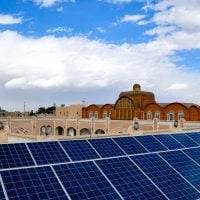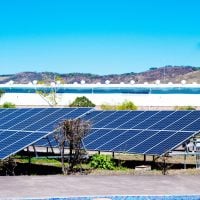In the realm of renewable energy, particularly solar access, international donor alliances play a pivotal role in facilitating funding, resources, and expertise. These alliances bring together various stakeholders, including governments, non-governmental organizations (NGOs), and private sector entities, to create a collaborative environment that fosters innovation and sustainable development. By pooling resources and knowledge, these alliances can address the multifaceted challenges associated with solar energy deployment, such as financing, technology transfer, and capacity building.
For NGOs focused on solar access, engaging with these alliances can significantly enhance their ability to implement impactful projects that contribute to global sustainability goals. Moreover, international donor alliances often have established networks that can amplify the reach and effectiveness of solar initiatives. They provide a platform for sharing best practices, lessons learned, and success stories that can inspire and inform other organizations.
By participating in these alliances, NGOs can not only gain access to funding but also benefit from the collective expertise of diverse stakeholders. This collaborative approach is essential in overcoming barriers to solar access, particularly in developing regions where resources may be limited. Ultimately, understanding the importance of these alliances is crucial for NGOs aiming to drive meaningful change in the solar energy landscape. Are You Working on Solar Innovation or Clean Energy Access? Join us to receive updates.
Key Takeaways
- Understanding the importance of international donor alliances is crucial for expanding solar access globally.
- Research and identify potential donor alliances to align with the goals and values of your solar access projects.
- Building strong relationships with international donor alliances is essential for long-term collaboration and support.
- Understanding the requirements and criteria for joining donor alliances is necessary to ensure eligibility and compliance.
- Crafting a compelling proposal for solar access projects is key to securing funding and support from donor alliances.
Researching and Identifying Potential Donor Alliances
The first step in engaging with international donor alliances is thorough research to identify potential partners that align with your organization’s mission and objectives. Start by exploring existing alliances focused on renewable energy and solar access. Resources such as online databases, industry reports, and networking events can provide valuable insights into which alliances are currently active and what their funding priorities are.
Pay attention to the geographical focus of these alliances, as some may prioritize specific regions or countries where solar access is most needed. Once you have identified potential donor alliances, delve deeper into their specific goals, funding mechanisms, and application processes. Understanding the nuances of each alliance will enable you to tailor your approach effectively.
For instance, some alliances may prioritize innovative technology solutions, while others may focus on community engagement or policy advocacy. By aligning your organization’s projects with the priorities of these alliances, you increase your chances of securing support and fostering a mutually beneficial relationship.
Building Relationships with International Donor Alliances

Establishing strong relationships with international donor alliances is essential for long-term success in securing funding and support for solar access projects. Begin by reaching out to key contacts within the alliance, whether through formal introductions or networking events. Building rapport is crucial; take the time to understand their priorities and challenges while sharing your organization’s vision and achievements.
Regular communication is vital in nurturing these relationships—consider scheduling periodic check-ins or updates to keep them informed about your progress and any new developments in your projects. Additionally, attending conferences and workshops hosted by these alliances can provide invaluable opportunities for face-to-face interactions. Engaging in discussions about shared interests can help solidify your organization’s presence within the alliance.
Remember that relationship-building is a two-way street; be open to offering your expertise or insights that may benefit the alliance as well. By positioning yourself as a valuable partner rather than just a recipient of funds, you can foster a more collaborative and productive relationship.
Understanding the Requirements and Criteria for Joining Donor Alliances
Each international donor alliance has its own set of requirements and criteria for membership or partnership. It is crucial for NGOs to thoroughly understand these prerequisites before applying or seeking collaboration. Common criteria may include organizational capacity, project alignment with the alliance’s goals, and demonstrated experience in implementing similar initiatives.
Carefully reviewing these requirements will help you assess whether your organization is a good fit for the alliance and what additional steps may be necessary to meet their expectations. In some cases, alliances may require specific documentation or evidence of past successes to evaluate your organization’s credibility. This could include financial statements, project reports, or letters of recommendation from other partners or stakeholders.
Preparing this documentation in advance can streamline the application process and demonstrate your commitment to transparency and accountability. By being well-prepared and informed about the requirements, you position your organization as a serious contender for collaboration within the donor alliance.
Crafting a Compelling Proposal for Solar Access Projects
A well-crafted proposal is essential for securing funding from international donor alliances for solar access projects. Start by clearly articulating the problem your project aims to address and how it aligns with the goals of the donor alliance. Use data and evidence to support your claims, demonstrating the urgency and significance of the issue at hand.
Additionally, outline your project’s objectives, methodologies, and expected outcomes in a clear and concise manner. Incorporating real-world examples or case studies can enhance your proposal’s credibility and appeal. Highlighting past successes or innovative approaches can showcase your organization’s capacity to deliver impactful results.
Furthermore, be sure to include a detailed budget that outlines how funds will be allocated and managed throughout the project lifecycle. A transparent budget not only builds trust but also demonstrates your organization’s commitment to responsible financial management.
Leveraging Existing Networks and Partnerships

Leveraging existing networks and partnerships can significantly enhance your organization’s ability to engage with international donor alliances effectively. Start by mapping out your current connections within the renewable energy sector, including other NGOs, academic institutions, government agencies, and private sector players. Identifying synergies among these stakeholders can create opportunities for collaboration that strengthen your proposals when approaching donor alliances.
Consider forming coalitions or partnerships with other organizations that share similar goals in solar access. Collaborative projects often attract more attention from donor alliances due to their potential for greater impact and resource efficiency. By pooling resources and expertise, you can present a more compelling case for funding while also expanding your reach within the donor community.
Additionally, maintaining open lines of communication with your network can lead to valuable referrals or introductions to key contacts within donor alliances.
Demonstrating Impact and Success Stories
Demonstrating impact through success stories is a powerful way to engage international donor alliances and secure funding for solar access projects. Collect data on past projects that highlight measurable outcomes such as increased energy access, reduced carbon emissions, or improved livelihoods in communities served by your initiatives. Use this data to create compelling narratives that showcase how your organization has made a difference in people’s lives through solar energy.
Incorporating testimonials from beneficiaries can further enhance the emotional appeal of your success stories. Personal accounts of how solar access has transformed lives can resonate deeply with potential donors, making them more likely to support your initiatives. Additionally, consider using visual storytelling techniques such as infographics or videos to present your impact in an engaging manner.
By effectively communicating your successes, you not only build credibility but also inspire confidence in potential partners within donor alliances.
Navigating the Legal and Regulatory Requirements for International Donor Alliances
Engaging with international donor alliances often involves navigating complex legal and regulatory requirements that vary by country and region. It is essential for NGOs to familiarize themselves with these regulations to ensure compliance throughout the project lifecycle. This may include understanding tax implications for foreign funding, reporting obligations, or specific legal frameworks governing international partnerships.
Consulting with legal experts or advisors who specialize in international development can provide valuable guidance in this area. They can help you identify potential pitfalls and ensure that your organization adheres to all necessary regulations when working with donor alliances. Additionally, staying informed about changes in legal frameworks related to renewable energy can help you anticipate challenges and adapt your strategies accordingly.
Cultivating Trust and Transparency in Relationships with Donor Alliances
Trust and transparency are foundational elements in building successful relationships with international donor alliances. NGOs must prioritize open communication regarding project progress, challenges faced, and financial management practices. Regularly updating donors on milestones achieved or setbacks encountered fosters a sense of partnership and accountability.
Moreover, being transparent about how funds are utilized demonstrates your organization’s commitment to responsible stewardship of resources. Providing detailed financial reports and impact assessments can help build trust over time. When donors feel confident that their contributions are being used effectively, they are more likely to continue supporting your initiatives in the future.
Managing Expectations and Responsibilities as a Member of Donor Alliances
As a member of an international donor alliance, it is crucial to manage expectations regarding roles and responsibilities effectively. Clearly define what is expected from your organization in terms of project implementation, reporting requirements, and communication protocols. Establishing these parameters early on can prevent misunderstandings down the line.
Additionally, be proactive in addressing any challenges or changes that may arise during project implementation. Keeping donors informed about any shifts in timelines or objectives demonstrates professionalism and accountability. By managing expectations effectively, you can foster a positive working relationship that encourages collaboration and mutual support among alliance members.
Maximizing the Benefits of Membership in International Donor Alliances for Solar Access
Membership in international donor alliances offers numerous benefits that NGOs can leverage to enhance their solar access initiatives. Beyond financial support, these alliances provide access to valuable resources such as training programs, technical assistance, and networking opportunities with other organizations working in similar fields. To maximize these benefits, actively participate in alliance activities such as workshops, conferences, or collaborative projects.
Engaging with other members allows you to share knowledge, learn from best practices, and explore potential partnerships that can amplify your impact. Additionally, consider taking on leadership roles within the alliance when possible; this not only raises your organization’s profile but also positions you as a thought leader in the solar access space. In conclusion, engaging with international donor alliances is a strategic approach for NGOs seeking to enhance solar access initiatives globally.
By understanding their importance, conducting thorough research, building relationships, crafting compelling proposals, leveraging networks, demonstrating impact, navigating legal requirements, cultivating trust, managing expectations, and maximizing membership benefits, organizations can significantly increase their chances of success in securing funding and driving meaningful change in renewable energy access.









































